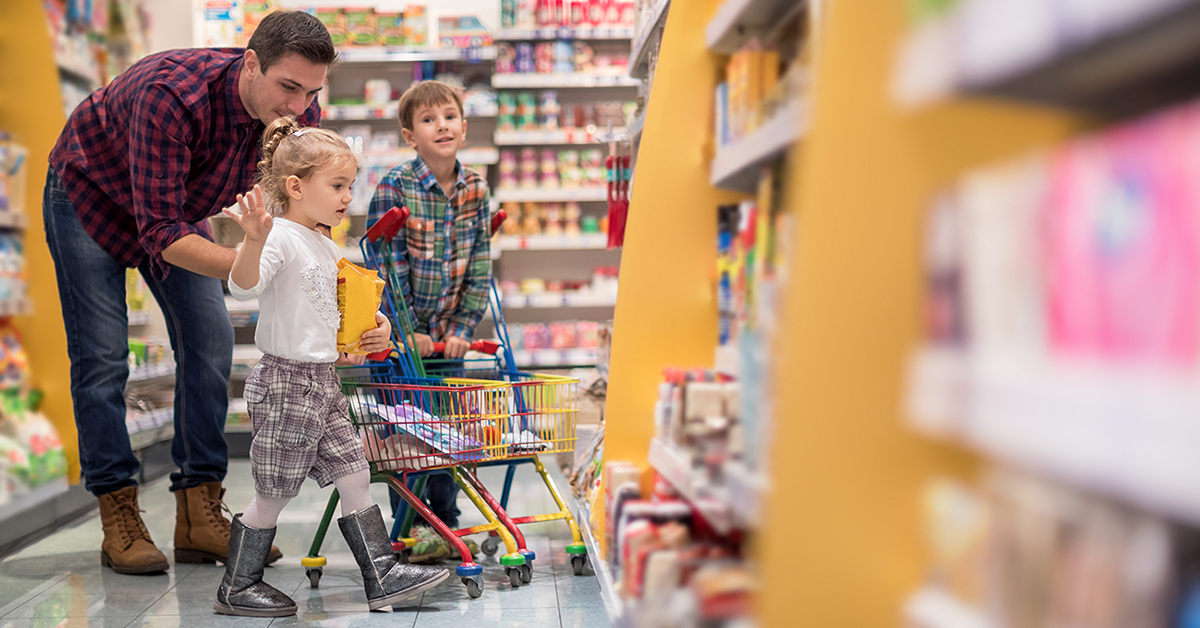As the federal government continues to roll back and undermine critical environmental and public health protections, we are amplifying our efforts in the marketplace to drive hazardous chemicals out of our homes and communities through our Mind the Store campaign.
One way we continue to do that is through our annual Who’s Minding the Store? retailer report card, which benchmarks the progress of the nation’s biggest retailers toward requiring products they sell utilize safer chemicals for consumers and workers. Last year, we expanded the report card from eleven to thirty retailers.
This year, we are expanding the campaign and report card once again, challenging an even larger universe of retailers to use their market power and influence to eliminate toxic chemicals, substitute them with safer alternatives, and develop comprehensive safer chemicals policies. By publicly ranking the nation’s biggest retailers, our aim is to spur a race to the top to drive the development of safer and healthier products free of hazardous chemicals.
There’s no question that our strategy is working. In 2017, seven out of eleven companies we scored in 2016 announced significant improvements to chemicals management, with a number of companies announcing new chemical policies for the first time ever. That is happening once again in 2018. Over the last few months, we have seen retailers like Trader Joe’s, Target, Lowe’s, The Home Depot, and Walmart expand their efforts to tackle toxic chemicals. Case in point: just last week Rite Aid announced a new safer chemicals policy and an expanded restricted substance list for the first time ever. We expect other retailers like Amazon and Walgreens to announce chemicals policies in the months ahead.
The dozen new retailers being ranked this November
This year’s report card will evaluate 12 new retailers or 40 companies in total.1 These businesses are leaders in their respective sectors and have the power and responsibility to get tough on toxic chemicals. The campaign is expanding the report to rank an apparel chain, a dollar store chain, an array of grocery stores (including a couple based in Canada), and, for the first time, six of the nation’s largest restaurant and fast food chains. Here are the new companies we are evaluating:
- Apparel store
- Nordstrom
- Dollar Store chain
- 99 Cents Only
- Grocery stores
- Aldi (Aldi Sud)
- Loblaws
- Publix
- Sobeys
- Restaurant / fast food chains
- McDonald’s
- Panera Bread
- Restaurant Brands International (Burger King, Popeyes, Tim Hortons)
- Starbucks
- Subway
- Yum! Brands (KFC, Pizza Hut, Taco Bell)
Cancer-causing and hormone-disrupting chemicals can be found in many types of products commonly sold by all of these retailers. We are including restaurant and fast food chains for the first time given the prevalence of chemicals like PFAS, phthalates, and bisphenol A (BPA) in food packaging and the food supply. This follows letters we recently sent to over 75 of the nation’s top grocery and restaurant chains. These chains can play an important role in getting these hazardous chemicals out of food. This year we are also including two chains based in Canada to expand the geographic scope of the report card.
This year’s report card will once again come out just in time for the holiday shopping season to help consumers understand which companies are retail leaders and who are laggards.
With the federal government failing to protect consumers, communities, and workers from toxic hazards, in the months and year ahead we will continue amplifying our campaign to challenge retailers to meet the rising consumer demand for safe and healthy products.
1 Toys “R” Us is not being evaluated this year given its store closures. While Amazon.com and Whole Foods are one company, they are being graded separately given the differences in their respective sustainability policies. Thus we will post a total of 41 separate evaluations.





